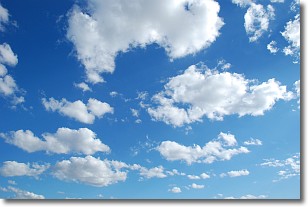Weather Alert in Iowa
Flood Warning issued July 11 at 6:57PM CDT until July 12 at 4:00AM CDT by NWS Quad Cities IA IL
AREAS AFFECTED: Dubuque, IA
DESCRIPTION: * WHAT...Flooding caused by excessive rainfall. * WHERE...A portion of northeast Iowa, including the following county, Dubuque. * WHEN...Until 400 AM CDT Saturday. * IMPACTS...Flooding of rivers, creeks, streams, and other low-lying and flood-prone locations is occurring. Streams continue to rise due to excess runoff from earlier rainfall. Expect many areas of slow moving or standing water to continue into the overnight. * ADDITIONAL DETAILS... - At 653 PM CDT, Emergency Management reported continued flooding in the warned area due to thunderstorms, including multiple closed roads. That includes Iowa Highway 3. Between 2 and 3.5 inches of rain have fallen. - This includes the following streams and drainages... Leisure Creek, Sinnipee Creek, Catfish Creek, Cloie Branch, Whitewater Creek, Haberkorn Creek, Platte River, North Fork Catfish Creek, Little Maquoketa River and Middle Fork Catfish Creek. - Some locations that will experience flooding include... Northern and western portions of Dubuque, Asbury, Peosta, Centralia, Sageville, Durango, Graf, Dubuque County Fairgrounds, Center Grove, Edmore and Lattnerville.
INSTRUCTION: Turn around, don't drown when encountering flooded roads. Most flood deaths occur in vehicles. Be especially cautious at night when it is harder to recognize the dangers of flooding. In hilly terrain there are low water crossings which are potentially dangerous in heavy rain. Do not attempt to cross flooded roads. Find an alternate route. Please report observed flooding to local emergency services or law enforcement and request they pass this information to the National Weather Service when you can do so safely.
Want more detail? Get the Complete 7 Day and Night Detailed Forecast!
Current U.S. National Radar--Current
The Current National Weather Radar is shown below with a UTC Time (subtract 5 hours from UTC to get Eastern Time).

National Weather Forecast--Current
The Current National Weather Forecast and National Weather Map are shown below.

National Weather Forecast for Tomorrow
Tomorrow National Weather Forecast and Tomorrow National Weather Map are show below.

North America Water Vapor (Moisture)
This map shows recent moisture content over North America. Bright and colored areas show high moisture (ie, clouds); brown indicates very little moisture present; black indicates no moisture.

Weather Topic: What is Condensation?
Home - Education - Precipitation - Condensation
 Next Topic: Contrails
Next Topic: Contrails
Condensation is the process which creates clouds, and therefore
it is a crucial process in the water cycle.
Condensation is the change of matter from a state of gas into a state of liquid,
and it happens because water molecules release heat into the atmosphere and
become organized into a more closely packed structure, what we might see as
water droplets.
Water is always present in the air around us as a vapor, but it's too small for
us to see. When water undergoes the process of condensation it becomes organized
into visible water droplets. You've probably seen condensation happen before on the
surface of a cold drink!
Next Topic: Contrails
Weather Topic: What are Cumulonimbus Clouds?
Home - Education - Cloud Types - Cumulonimbus Clouds
 Next Topic: Cumulus Clouds
Next Topic: Cumulus Clouds
The final form taken by a growing cumulus cloud is the
cumulonimbus cloud, which is very tall and dense.
The tower of a cumulonimbus cloud can soar 23 km into the atmosphere, although
most commonly they stop growing at an altitude of 6 km.
Even small cumulonimbus clouds appear very large in comparison to other cloud types.
They can signal the approach of stormy weather, such as thunderstorms or blizzards.
Next Topic: Cumulus Clouds
Current conditions powered by WeatherAPI.com




